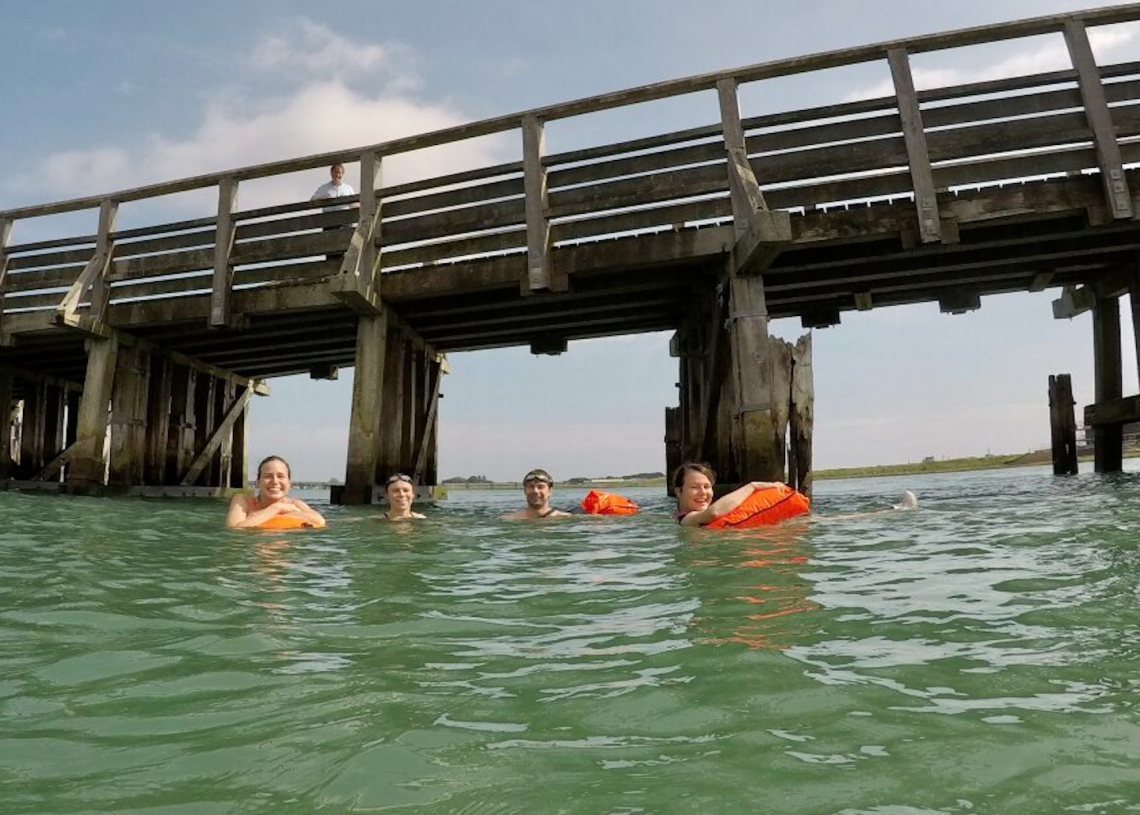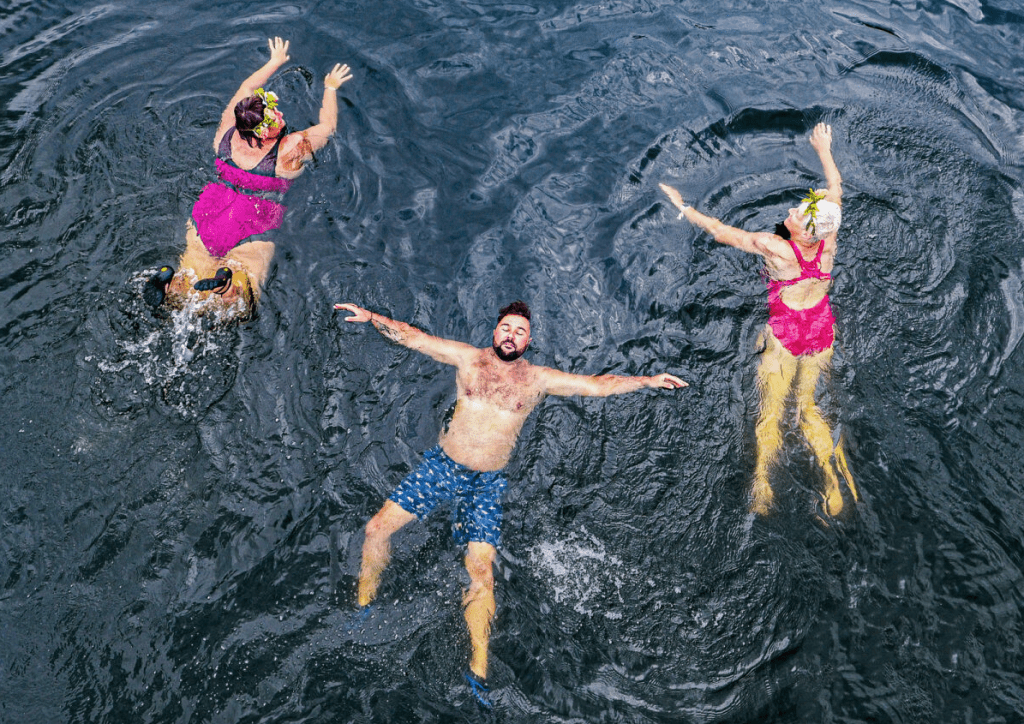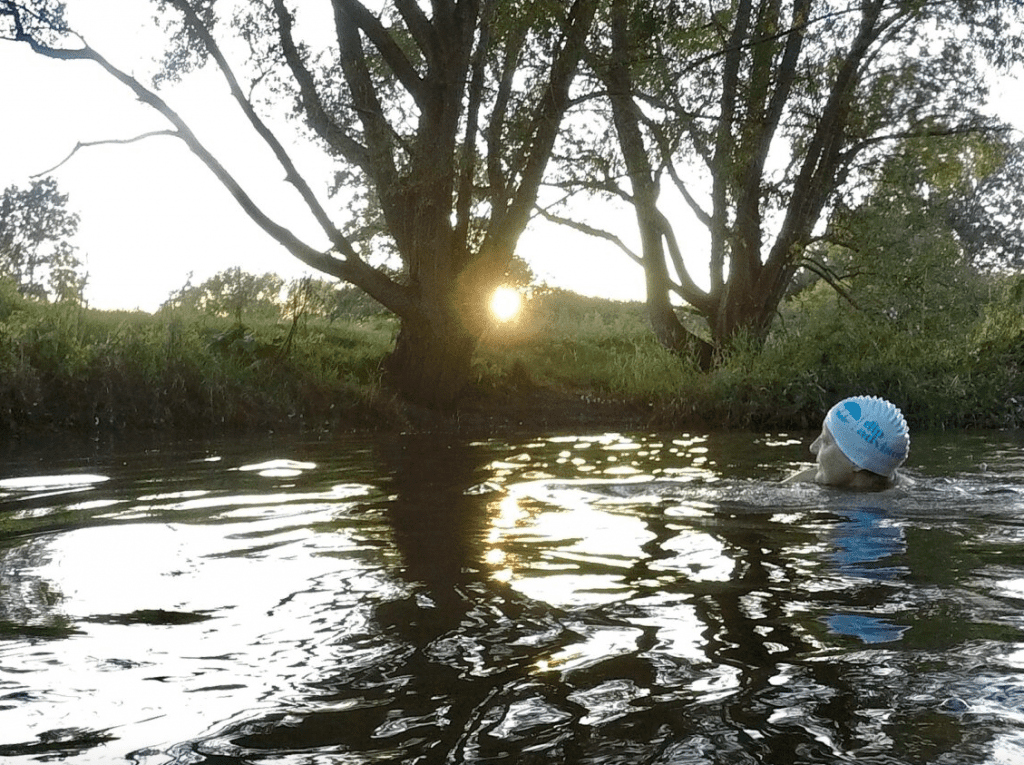
Swim support you can trust
Are they qualified? What experience do they have? In this growing world of outdoor swimming, we share some advice for choosing the right guide to support you and keep you safe on your swimming journey
As the outdoor swimming world grows, so too does the range of professional coaches and guides who are there to support you into this watery world. Swim guide, open water coach, cold water therapist are just a few of the job titles you might come across. Finding the right person can help you along to a lifelong love of water but it’s also essential that whomever you hire is able to keep you safe, and educate and train you appropriately.
Firstly, it’s important to understand that anyone can call themselves a coach, guide or therapist. While there are qualifications with these names in their titles, there is no regulator to check the appropriateness of what a provider is offering. Fundamentally it’s down to you, the client, to check a provider meets your needs. This might seem like a daunting task but this article aims to provide you with a toolkit to help you learn what to look for.

Do your research
Humans can be very trusting. A fun and engaging post on social media can lead many people to book with a provider. There’s nothing wrong with this, but recent incidents and near misses give rise to caution around booking with that happy face or charismatic speaker without digging a little deeper.
A tragic paddle board incident in Pembrokeshire in 2021 highlights how important it is to check the background of whomever you book as your guide. The investigation into this incident, in which five people lost their lives while on a guided trip, made clear that the fatalities were wholly avoidable. One of the key findings of the report was that the guides were not appropriately qualified or experienced to be leading a trip of that type. The participants on the trip reported that the guides seemed very confident and subsequently the participants didn’t question their decision making or background.
While this incident wasn’t outdoor swimming related it has many parallels in terms of the outdoor water environment and the risks involved.
Understand the risks
Such incidents provide a stark warning to anyone trusting another person with their safety around water. While outdoor swimming can be very safe, it doesn’t come wholly without risk. Understanding and learning to manage those risks is key having an enjoyable experience. When you put your enjoyment and safety into the hands of someone else you want to feel assured that they are able to do what you expect of them.
This article focuses predominantly on a provider’s ability to keep you safe while in their care, but the same approaches can and should be applied to what you’re looking to get out of your experience, whether that be building confidence to take your first wild swim or training to swim the Channel. You don’t want to spend money or time on something that doesn’t meet your needs.
What to look out for from your provider can be broken down into three areas: qualifications, experience and insurance.

Qualifications
There’s a growing market of qualifications claiming to make people expert coaches, guides and therapists in all myriad of things. While many qualifications are excellent, there are some that amount to a certificate in return for a few of hours watching a webinar and shelling out a punitive fee.
To check that a qualification is reputable it’s worth looking at who’s awarded it. Those affiliated to national governing bodies (NGBs) or leading safety organisations such as the RLSS, RNLI, Swim England and STA give you confidence that they’ve been checked and delivered by experts in the field.
In addition to coaching qualifications, it’s important that, either the person you’re being coached by, or others around them such as swim venue staff, have extra appropriate safety qualifications. Accidents do happen and you want to be assured that any incident can be managed well and appropriate 1st aid and CPR can be provided.
Safety qualifications have to be renewed every 2-3 years and that renewal process ensures that providers are kept up to speed and refreshed on current methods in first aid and risk management. What’s appropriate in each environment is different but good qualifications to look out for include:
RLSS Open water lifeguard
RLSS National Water Safety Management Programme
STA Open Water Safety
16 hr Outdoor First Aid
Experience
While qualifications go some way to providing guides with the skills needed to support others in the outdoors, they are worth very little without lived experience too. Everyone has to start somewhere as a guide, coach or therapist, but prior experience – whether through personal leisure and/or by shadowing a fellow coach or guide – is essential if someone is going to offer a good service and keep you safe in the process. Only by experiencing an environment in varying circumstances and seeing how a range of people react to it can someone truly keep others safe.
Some examples to consider:
If someone’s coaching you to swim the English Channel, do they have experience in long distance swimming themselves and have they coached others in this discipline?
If a provider’s offering a walk to a remote waterfall for a cold water dip, do they have the relevant experience, not just in guiding people through cold water immersion, but also in leading others in remote environments away from the relative safety of say, an organised swim venue?
Both of these examples require different skill sets and experience and it’s good to check your provider has these to make sure you have an enjoyable experience.
Insurance
Providers should be insured for their activity. This protects both you, them and the general public from accidents and incidents whilst undertaking a session. Insurers won’t offer cover to anyone they don’t deem experienced or qualified to undertake the activity they’re proposing.
Insurers often look for qualifications, evidence of experience and risk assessments before issuing a policy.

So, where do you find this information about your provider? Websites and social media “About” pages are a great place to start. If you can’t find the information easily, don’t hesitate to drop them a message and ask. Good quality providers should be happy to give this information. If they won’t then it’s time to consider whether you book a session with them or not.
Before and during a session don’t be afraid to ask questions too. If you’re unsure why you’re doing something a certain way or are worried about whether something feels or is safe, always ask. There’s no such thing as a stupid question in the outdoors – there is always something to learn, and good quality coaches and guides will do all they can to answer questions and educate you.
Finding the right coach, guide or therapist can be life changing so never hesitate to look for professional support. Hopefully these pointers will help you find the right person to support you.
Happy Swimming!
Browse our directory of professional swim coaches and guides.








